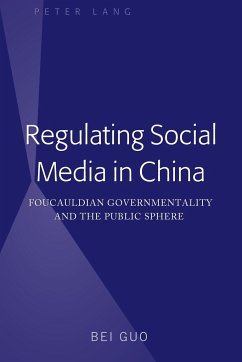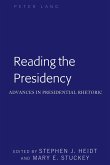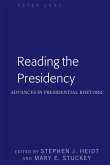Regulating Social Media in China: Foucauldian Governmentality and the Public Sphere is the first in-depth study to apply the Foucauldian notion of governmentality to China's field of social media. This book provokes readers to contemplate the democratizing potential of social media in China. By deploying Foucault's theory of governmentality as an explanatory framework, author Bei Guo explores the seemingly paradoxical relationship of the Chinese party-state to the expansion of social media platforms. Guo argues that the Chinese government has several interests in promoting community participation and engagement through the internet platform Weibo, including extending the presence of its own agencies on Weibo while simultaneously controlling the discourse in many important ways. This book provides an important corrective to overly sanguine accounts that social media promotes a Habermasian public sphere along liberal democratic lines. It demonstrates how China, as an authoritarian country, responds to its citizens' voracious hunger for information and regulates this by carefully adopting both liberal and authoritarian techniques.
Bitte wählen Sie Ihr Anliegen aus.
Rechnungen
Retourenschein anfordern
Bestellstatus
Storno








